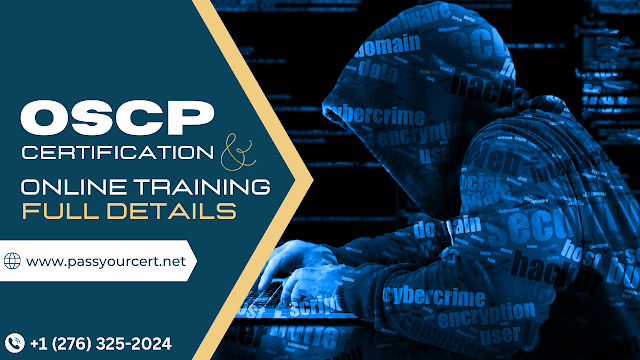The Comprehensive Guide to Excelling as a Chief Management Officer (CMO)
The role of a Chief Management Officer (CMO) is pivotal in driving an organization toward success by ensuring optimal daily operations, resource management, and strategic planning. A CMO’s ability to lead effectively, communicate persuasively, and make data-driven decisions determines their impact on organizational performance. This article delves into the essential skills, strategies, and practices every CMO must adopt to thrive in today’s competitive business environment.
Developing a Strategic Vision
A strategic vision is the cornerstone of a successful organization. A CMO must define a clear and actionable roadmap that aligns with the company’s overarching goals. This includes:
- Articulating Objectives: Establishing specific, measurable, achievable, relevant, and time-bound (SMART) goals.
- Fostering Alignment: Ensuring employees and stakeholders understand and support the vision.
- Driving Collaboration: Promoting teamwork by uniting diverse teams under a shared purpose.
By fostering a culture centered around strategic clarity, the CMO ensures that all efforts contribute to long-term organizational success.
Mastering Leadership and People Management
Effective leadership is critical for inspiring teams and fostering a productive work culture. Key aspects include:
- Empowering Employees: Providing constructive feedback, professional development opportunities, and recognition for achievements.
- Building Trust: Encouraging open communication, transparency, and ethical behavior.
- Fostering Teamwork: Creating an environment where collaboration and mutual respect thrive.
Through adept leadership, a CMO ensures that employees remain motivated, engaged, and aligned with organizational objectives.
Communication and Interpersonal Excellence
Strong communication skills enable a CMO to build meaningful relationships and drive organizational change. This entails:
- Active Listening: Understanding diverse perspectives and addressing concerns empathetically.
- Persuasive Communication: Delivering clear, compelling messages to inspire action.
- Stakeholder Engagement: Building trust with investors, partners, and team members through consistent and honest communication.
Mastering these skills helps a CMO navigate complex organizational dynamics while fostering a culture of openness and collaboration.
Problem-Solving and Decision-Making Mastery
Effective problem-solving is vital for navigating challenges and seizing opportunities. A CMO must:
- Analyze Complex Issues: Break down problems to uncover root causes.
- Leverage Data: Use metrics and analytics to evaluate potential solutions.
- Make Informed Decisions: Assess risks, benefits, and long-term impacts before acting.
This structured approach empowers CMOs to resolve challenges effectively and steer the organization toward sustained success.
Adaptability and Change Management
In a fast-evolving business landscape, adaptability is non-negotiable. CMOs should:
- Identify Growth Opportunities: Proactively seek avenues for innovation and improvement.
- Champion Change: Guide teams through transitions with clear communication and support.
- Encourage Flexibility: Foster a culture where employees embrace new ideas and approaches.
By staying agile, CMOs can position their organizations to thrive amid market shifts.
Financial Acumen and Business Expertise
A deep understanding of financial principles enables CMOs to make decisions that bolster organizational stability. Core competencies include:
- Budget Management: Allocating resources effectively to achieve strategic goals.
- Performance Analysis: Monitoring financial metrics to identify strengths and weaknesses.
- Strategic Planning: Aligning fiscal policies with the organization’s broader objectives.
These skills help CMOs ensure long-term financial health and operational efficiency.
Data-Driven Leadership
Harnessing data is crucial for making evidence-based decisions. CMOs must:
- Track Key Performance Indicators (KPIs): Measure progress and identify improvement areas.
- Utilize Analytics Tools: Leverage advanced platforms to gain actionable insights.
- Drive Innovation: Use data to refine strategies and enhance customer satisfaction.
A data-centric approach ensures that decisions are grounded in reality, leading to better outcomes.
Ethical Leadership and Corporate Social Responsibility (CSR)
Ethics and social responsibility are integral to modern leadership. CMOs should:
- Promote Integrity: Encourage ethical practices across all levels of the organization.
- Prioritize CSR: Integrate social and environmental initiatives into business strategies.
- Lead by Example: Demonstrate accountability and transparency in decision-making.
This commitment not only strengthens organizational reputation but also fosters trust among stakeholders.
Continuous Learning and Professional Development
Staying ahead requires a dedication to lifelong learning. CMOs must:
- Stay Informed: Keep abreast of industry trends, emerging technologies, and best practices.
- Pursue Growth Opportunities: Attend workshops, seminars, and certifications to refine skills.
- Foster a Learning Culture: Encourage employees to embrace continuous improvement.
By prioritizing development, CMOs ensure their relevance in an ever-changing business environment.
Collaboration and Cross-Functional Alignment
Effective collaboration across departments enhances organizational efficiency. CMOs should:
- Break Down Silos: Encourage interdepartmental communication and cooperation.
- Ensure Alignment: Synchronize team efforts to achieve shared objectives.
- Leverage Strengths: Utilize diverse perspectives to drive innovation.
This approach fosters synergy, resulting in streamlined operations and improved performance.
Stress Management and Resilience
Thriving under pressure is a hallmark of great leadership. CMOs must:
- Develop Coping Mechanisms: Use mindfulness, exercise, and time management to reduce stress.
- Prevent Burnout: Encourage a healthy work-life balance for themselves and their teams.
- Promote Wellness: Foster a supportive environment where employees feel valued and energized.
By prioritizing mental well-being, CMOs create a resilient organization capable of enduring challenges.
By mastering these competencies, a Chief Management Officer can effectively lead their organization, foster innovation, and achieve sustainable growth in a dynamic business environment.


%20656-0395%20(3).png)

Comments
Post a Comment